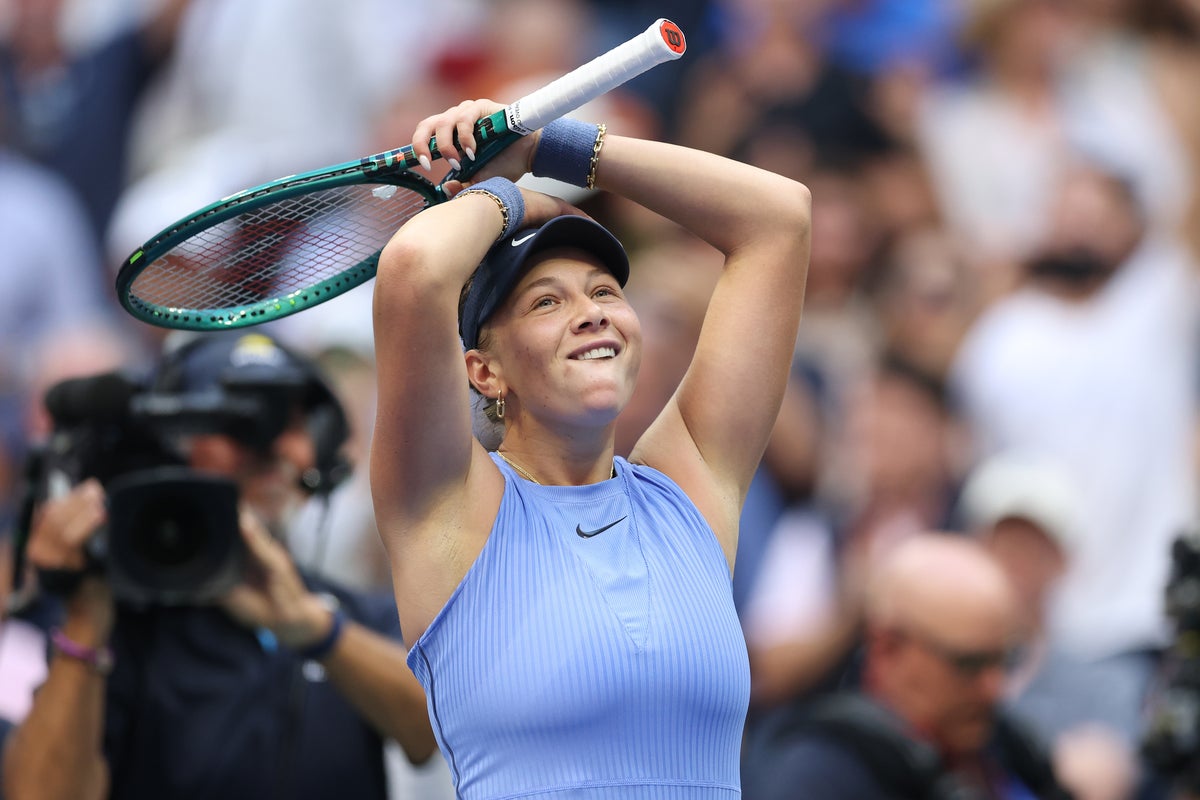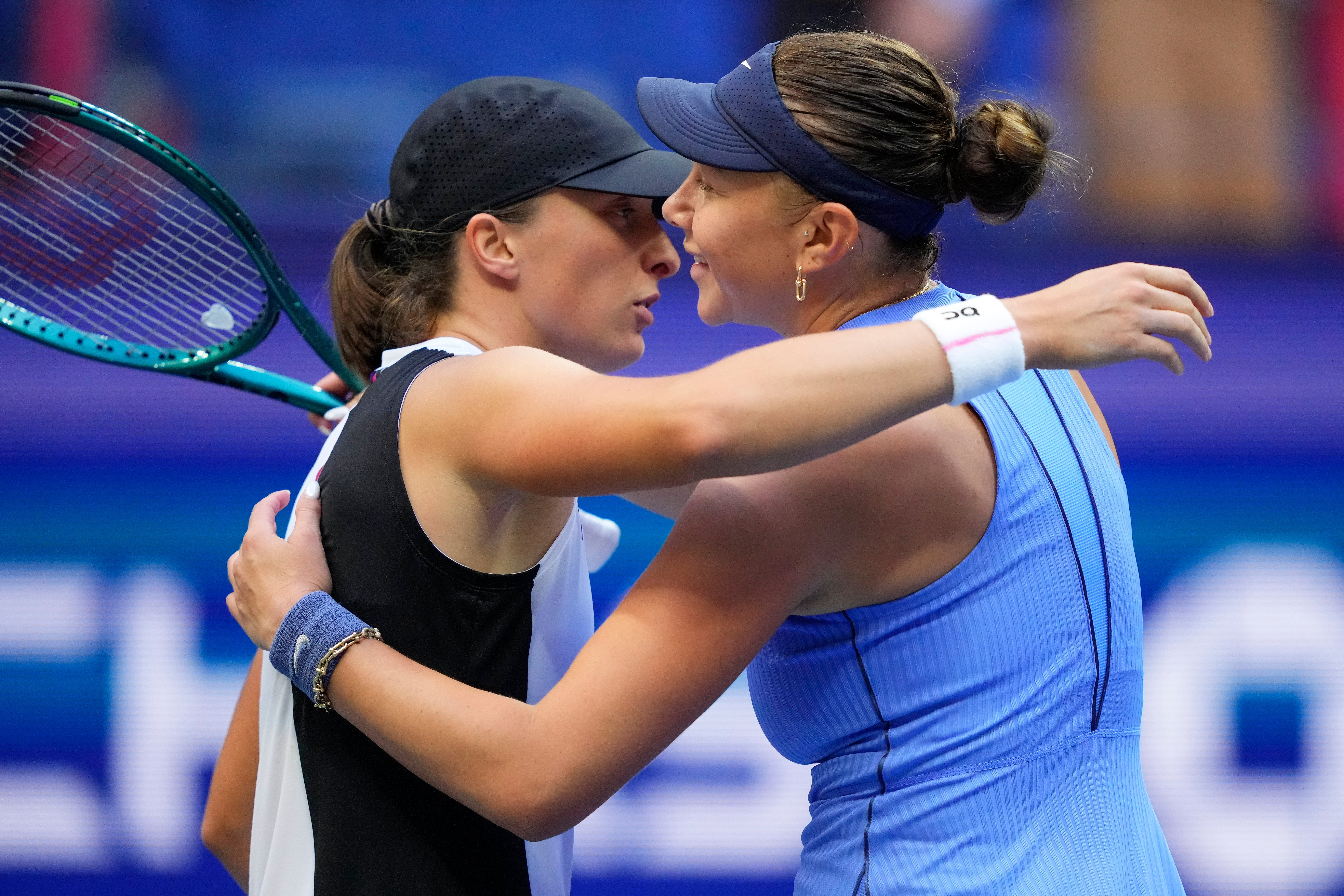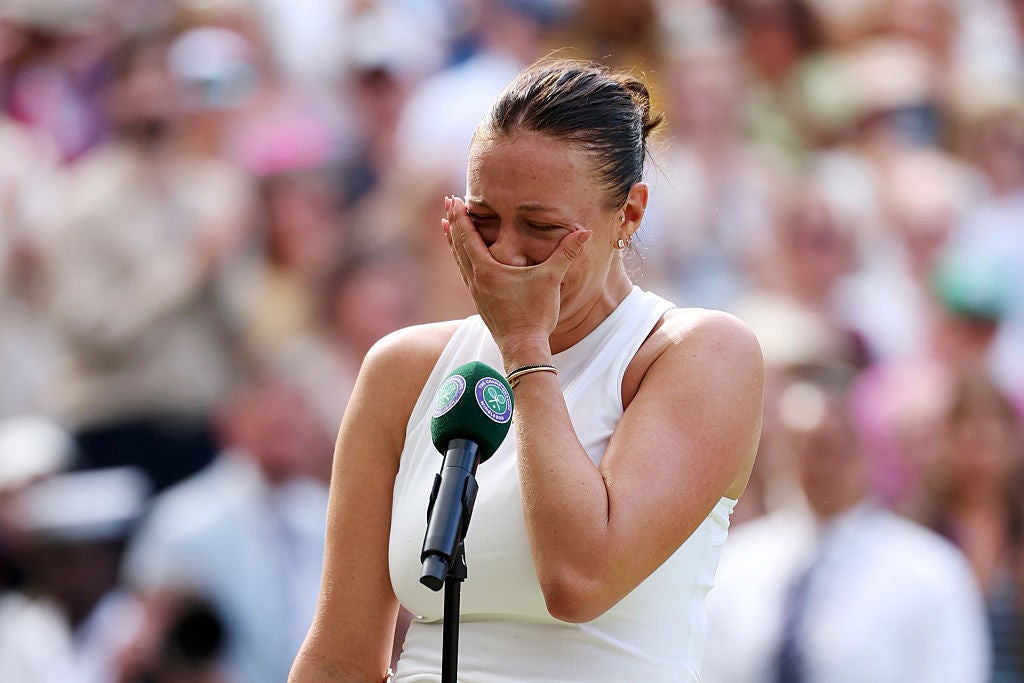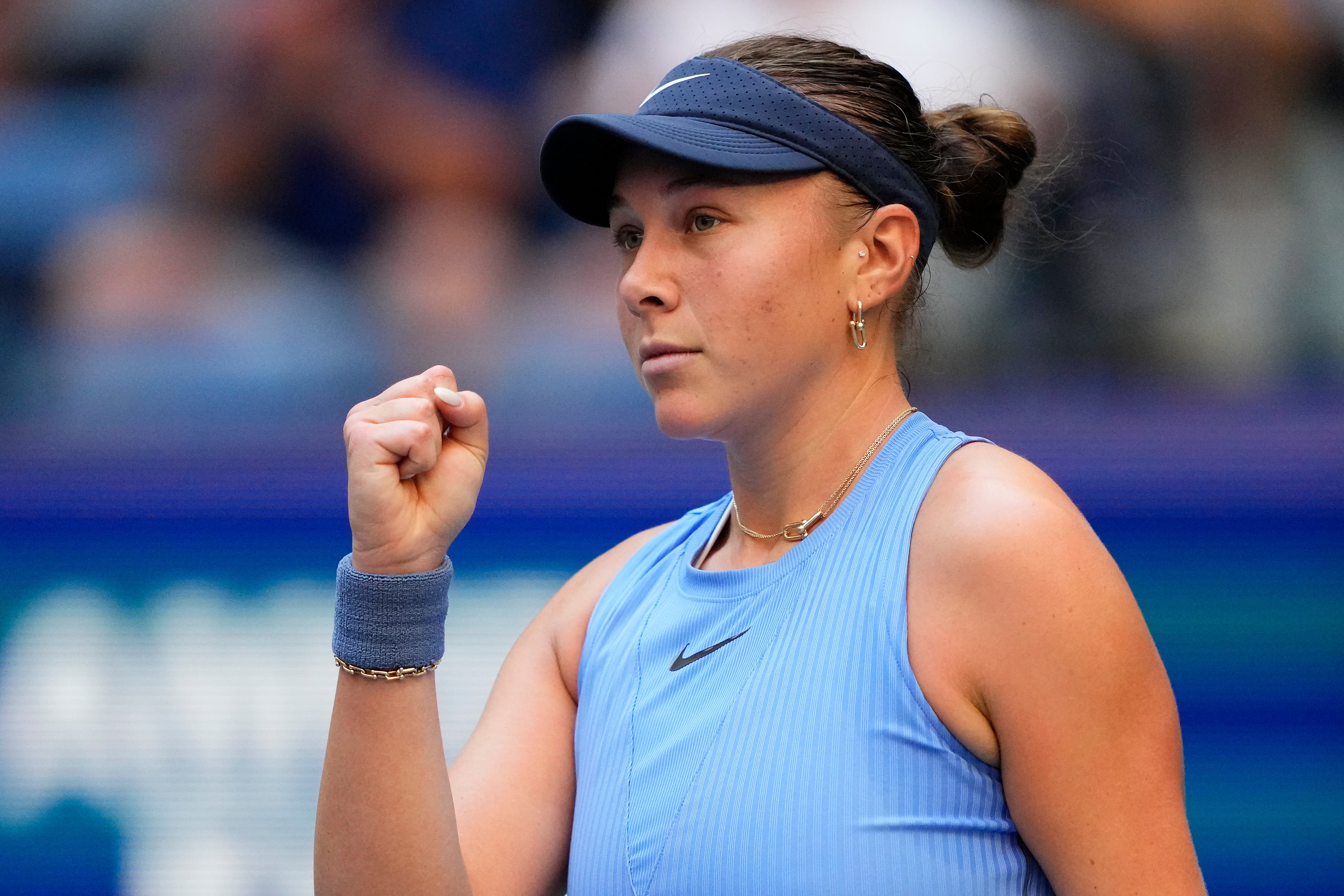
On the night before Amanda Anisimova faced Iga Swiatek in the US Open quarter-final, in a rematch of her nightmare 6-0 6-0 defeat to the same opponent in the Wimbledon final just seven weeks before, she decided to put herself through the worst experience of her professional career again. “Nobody told me to, but I watched it back, as painful as it was,” Anisimova laughed.
After finding some more positive highlights to rebuild her confidence, Anisimova then removed what happened on Centre Court from her mind. But when Swiatek broke Anisimova’s serve in the very first game of the match, the 24-year-old couldn’t help the memories of the double-bagel humiliation from flooding back. “I was really like, okay, here we go,” Anisimova grimaced. Once again, there was nowhere for her to hide
Instead, Anisimova wrote a different story. Just 53 days after the whitewash to Swiatek in the Wimbledon final, the American claimed revenge to reach her first US Open semi-final, winning 6-4 6-3 against the World No 2.

“I'm just really, really proud of myself,” Anisimova said later. “I feel like I really made a point to myself and also maybe to other people that if you really put a positive mindset out there or just try and work through things, then you can have a positive outcome.”
When Anisimova wiped the tears from her eyes and exited Centre Court after becoming just the second player in grand slam history to lose a final 6-0 6-0, it would have been perfectly understandable for her to leave her racket behind and forget about tennis for a few weeks. Anisimova had suffered the kind of experience that keeps athletes up at night, a total collapse on the biggest stage where even the basic skills suddenly become impossible.
But once Anisimova was shielded from the eyes of the world, there were no more tears afterwards. “I got on the phone with someone, and I kind of just laughed it off,” Anisimova said. There was no avoiding reality. “I was, like, yeah, this is insane.”
Anisimova reasoned that while losing the Wimbledon final without winning a single game was the worst thing that could have happened on July 12, and a lot to process, it was ultimately not the end of the world. Anisimova, after all, has been through dark places before. A former teenage prodigy who reached her first grand slam semi-final at the French Open at the age of 17, the death of her father and coach Konstantin before the US Open in 2019 stalled her progress, with Anisimova skipping the majority of the 2023 season to allow herself a mental health break.
“I feel like I was really able to bounce back from it [Wimbledon final] really quickly,” Anisimova said. “Maybe a few years ago I wouldn't have done the same as well as I have this time. Losing like that in a grand slam final, I think I would have maybe blamed myself more or held on to guilt for a longer amount of time.
“But at the end of the day, to me it was just tennis. I mean, I'm living out my dreams, and I'm in a really good place in my life. I'm happy every single day, which I really wasn't a couple of years ago.
“I was going through a lot, and every single day was kind of a sh*tty day for me. Looking back at that, it's not the most important thing to me. It's what happened that day, and really it's just a tennis match at the end of the day, so I kind of just look at it like that.”

Still, the spectacle of Anisimova playing Swiatek in a grand slam quarter-final so soon after the Wimbledon final added to the pressure. She sensed what the world was talking about, and arrived at the gym in the morning of the rematch to see images from the Wimbledon final flashing up on the TV screens around the room.
In order to block out reminders of the 6-0 6-0, Anisimova used mindfulness tactics that she has practiced, while going through her preparations as normally as possible. “I was like, warming up in the gym and then they're like, playing the Wimbledon final on both sides of the TV,” Anisimova remembered. “I'm just like, zoned in.”
On the other side of the net, Swiatek looked to be as ruthless as she had been while winning Wimbledon, where she allowed Anisimova no mercy. Arthur Ashe Stadium was full and it felt like everyone there knew what had unfolded in July. When Anisimova faced tricky points on serve at 15-15 and 15-30 in the first game of the match, there was a sense of desperation to the cries of support from the stands, unusual at such a stage of a quarter-final.
Anisimova didn’t hold, either, immediately going 1-0 down to the break. Yet the American remained upbeat, maintaining a positive energy and reinforcing herself by bouncing around the back of the court - something she noticed was missing when she rewatched the Wimbledon final. I think the most important part of today was really “lifting myself up,” she said.

Anisimova settled as soon as she landed her first return in play, and broke straight back. From the relief of getting onto the scoreboard, it became clear that from the change of setting and the contrast in surface, this would be a different match as well. After the Wimbledon final brutally exposed Anisimova’s vulnerabilities, she relished the opportunity to play to her strengths and aggressively targeted the Swiatek serve.
“I really came out there with not an ounce of fear,” Anisimova said.
What emerged was the confident, big-hitting game that has brought Anisimova back into the top-10 of the world. Her victory over World No 1 Aryna Sabalenka in the Wimbledon semi-final promised that Anisimova could have gone on to win the title. Instead, she woke up on the morning of the final feeling fatigued and sensing “red flags”.
Now, after taking Swiatek apart, there is only positivity. “It still feels a bit surreal. It's the farthest I've gone by far at the US Open and it's extremely special. Today is definitely the most meaningful victory I've had in my life,” Anisimova said.
“I have that belief in myself and that confidence that I'm able to play at the top level, and I'm able to really go head-to-head with these top three and everyone who is in the top 10. I've shown that, and I think I was able to prove that to myself time and time again for a long time now.”
Anisimova will now play two-time US Open champion Naomi Osaka for a place in the final. But no matter what happens on Thursday night, the message Anisimova sent by bouncing back from the toughest defeat of her career to her most memorable victory, just 53 days later, may last even longer.
How Novak Djokovic tormented and embarrassed Taylor Fritz to extend US Open nightmare
Novak Djokovic’s historic US Open run now faces a problem he created
Felix Auger-Aliassime beats Alex de Minaur to reach last four of US Open
US Open live: Sinner battles Musetti as Anisimova stuns Swiatek
Novak Djokovic v Carlos Alcaraz start time: When is US Open semi-final?
Felix Auger-Aliassime beats Alex de Minaur to reach last four of US Open







